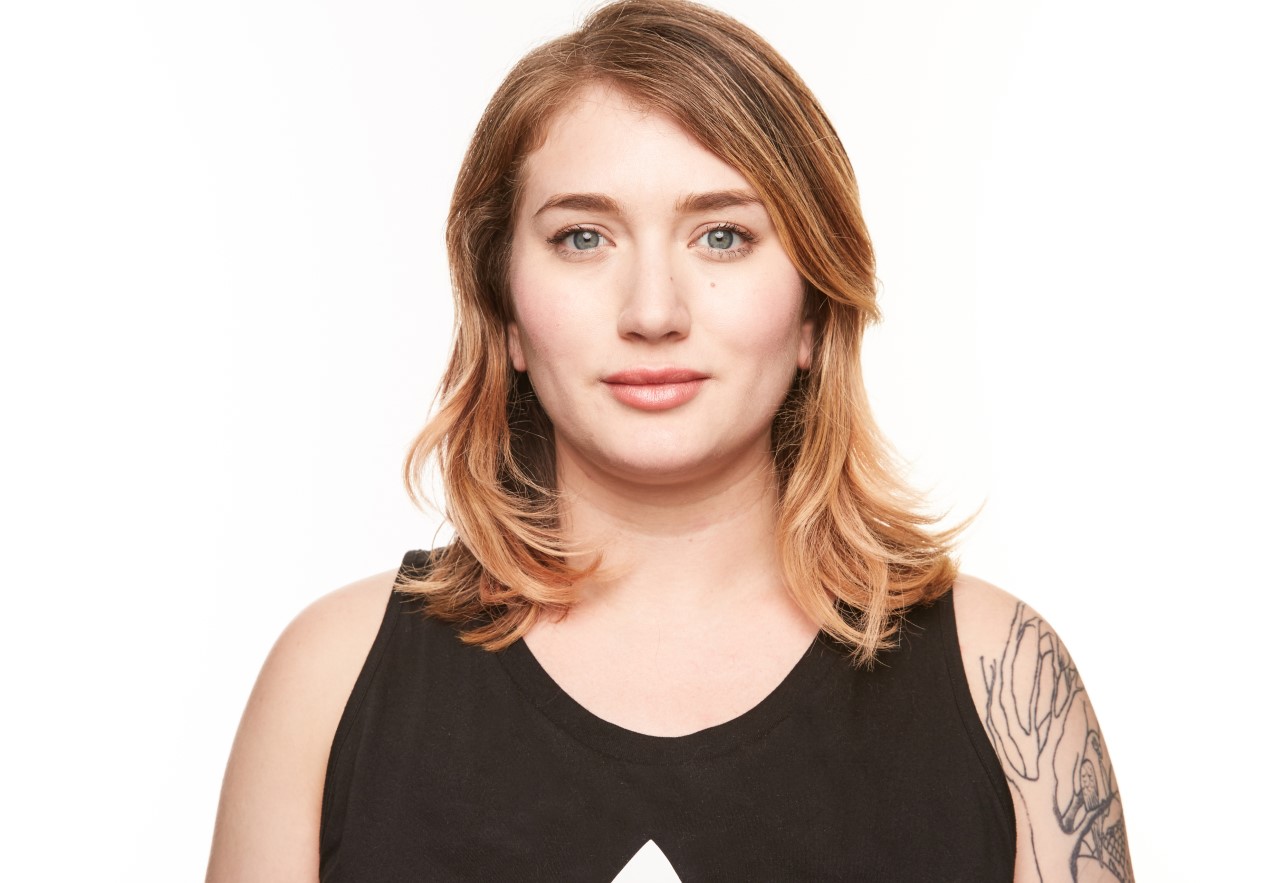I remember when I first came out to my employers last summer.
I had recently shared my desire for folks to use they/them pronouns when referring to me with my partner and a few close friends. I remember feeling terrified, perspiring anxiously as I typed out the email to my editors. I felt scared to request these pronouns, like I was inconveniencing or confusing my superiors by requesting a pronoun change I wasn’t even entirely sure of. As someone whose gender identity is super fluid, I worried I’d be embarrassed if I changed my mind about my pronouns to lean towards the masculine he/him instead. But of course, this is the nature of gender nonconforming identities, something my open-minded and loving editors accepted wholeheartedly (to my delight and relief).
Beauty editor and writer Sam Escobar was met with the same kind of anxiety recently when they came out to the world about their non-binary identity. Luckily, their editors and co-workers were as kind and open-minded as my own, honoring their preferred pronouns and their name change (from Samantha to Sam) without question. Since coming out, Escobar has become a strong voice for gender nonconforming folks everywhere, speaking candidly about their identity for multiple publications including Femsplain and Esquire.
In a transphobic world dominated by the gender binary, I admire their strength in discussing gender identity politics and issues so publicly, both in the workplace and online. And when the media is so saturated in gender-based stereotypes and cisnormativity, Escobar’s voice is a refreshing change of pace that helps us all become a little more aware of our micro-aggressions towards identities outside of our own. I got a chance to speak with them about their experience being a non-binary person in the workplace, as well as what adjusting to new pronouns (and folks’ reactions to it) have been like.
The following conversation has been edited for clarity.
HelloFlo: What made you decide to come out in the workplace? (To clarify, did you come out about using they/them pronouns, being genderqueer, or both?)
Sam Escobar: I came out as using they/them pronouns at the same time as I told them how I identify. I was finally feeling comfortable asking my friends to use they/them, so I felt like it was time to take the next step and explain my preferred pronouns to people I’m around for such a big chunk of my week.
HF: In your latest Esquire piece, you mentioned how coming out on social media didn’t faze you much. How was coming out at Good Housekeeping the same as or different than that experience?
SE: Coming out on social media to my friends and family (and whatever amalgamation of people I’m still connected with from high school on Facebook) was a matter of being impulsive and wanting to openly share something I’d felt for a long time. It was very “take it or leave it” because with friends, and to some extent family, you can choose whether or not to keep someone in your life.
Coming out to coworkers is different because they’re people you work with daily and need to get along with. And in my case, the main reason I did it was because I wanted to have those around me use my preferred pronouns — otherwise, it wouldn’t have come up. Whereas in my personal life, I share a lot more of that part of myself. It took a little more planning because I wanted to make sure I explained myself thoughtfully and concisely.
HF: Did you have any concerns about coming out at work? If so, did any of them prove to be true?
SE: I was a little nervous that some of my coworkers might think it was too much trouble or that they were being inconvenienced. I didn’t want anyone to think they had to tiptoe around me just because I use pronouns that might be unfamiliar. This has not been the case, so that’s great.
HF: What were your boss & coworkers’ reactions to your new pronouns & name?
SE: I was honestly so surprised and grateful for how they reacted. I sent the email explaining my preferred pronouns and how I identify at the end of the day, and immediately received multiple messages from folks on my team voicing their support.
One asked for some clarification on proper grammar with gender neutral pronouns, which is exactly what I was hoping for — I didn’t want anyone to be afraid to ask me questions. All the questions I got were respectful and all the feedback I got, both from my own team as well as members of other teams in response to my Esquire piece earlier this year, has been supportive.
HF: What kind of adjustments had to be made in your day to day at work, if any, to help you feel more comfortable as an out genderqueer person in the workplace?
SE: Nothing big changed. It’s just been really nice that people have made an effort to use my preferred pronouns and, if they flub, just quickly correct themselves and move on. It’s always easier to be productive, I think, when you feel like people respect your preferences and identity.
HF: What’s your favorite comment/moment post-coming out in the office? Least favorite?
SE: Favorite: It’s small, simple things, like when somebody uses my correct pronouns in front of others without formally explaining it or making it into a big deal. The other day, I did a Facebook Live with one of my editors and she used the correct pronouns — she didn’t pause to explain them, which would’ve made me feel awkward and put on-the-spot. Using my correct pronouns is, at this point, mandatory for me. But it’s way more comfortable when a long explanation doesn’t accompany my introduction to new people, so that was really nice.
Least favorite: Probably the days leading up to sending that email. I psyched myself out so much that I thought I was going to have a panic attack beforehand. Expect the worst and hope for the best, though, right?
HF: Was it empowering/important for you to be honest about your identity at work? Why?
SE: I had been so anxious about it for so many years that being open in my home, social and work lives made me feel much more complete. I still have a long way to go regarding my desired presentation, as well as being fully comfortable with dating. But being able to be open and hear my correct pronouns being used by people I’m around all the time has made me feel so much better.
HF: What would you say to other trans and gender nonconforming folks who are closeted or have recently come out in the workplace?
SE: I acknowledge that I hold a lot of privilege — I’m female-presenting and, while I’m Latinx and queer, I’m typically presumed to be Caucasian and straight–so I don’t face a lot of discrimination from strangers in general. Mostly just comments on the internet or inappropriate questions from acquaintances at parties or bars.
I work in a pretty liberal, open-minded environment, so I was able to judge very accurately whether or not the people I work with would be supportive. It’s important to gauge the attitudes of those around you because there are so many people out there who believe it’s perfectly okay to discriminate against trans and GNC folks, and others who believe harmful myths about trans and GNC people. I am lucky to live in a city known for being more open-minded than most, and I understand that for many people, this isn’t the case.
HF: Has the GH work culture shifted at all or have they expressed interest in any trans/GNC content since you’ve come out?
SE: I’ve felt more comfortable pitching topics related to trans and GNC content, so that’s been really great.




comments